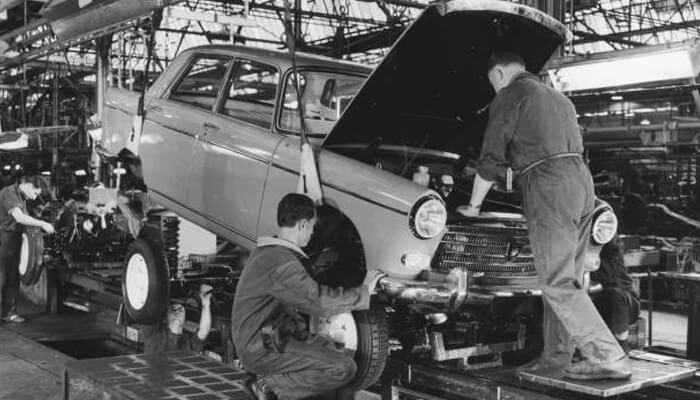Lynda Jackson’s family has worked in Detroit’s car industry’s for three generations, and all three generations have been union members.
In the 1960s, her father relocated to Detroit from Alabama to work for Chrysler. All of her aunts, stepmother, and cousins worked for Ford, GM, and Chrysler (now Stellantis) until they retired with pensions, health insurance, and other benefits.’
Forklift driver Jackson, a 36-year-old Black woman employed by Stellantis, said she wanted the same for her own family as well as her neighborhood. For the Black community, the auto sector and these plants are crucial, according to Jackson. It would be disastrous for the Black community and the inner city to lose jobs.
Black workers in America have historically depended on union auto jobs as an essential path to financial security. Black individuals forced the auto industry open job by job and plant by plant. They acquired seniority and used it to get access to higher-paying jobs that they had previously been denied. Today, the proportion of Black employees in the auto sector is more than double that of the whole workforce.
But Black workers have been severely hurt by the loss of US auto jobs and the collapse of unions. Since the United Auto Workers union conceded in 2007 and 2009 as automakers were heading towards bankruptcy and federal bailouts, many have seen the auto industry shift from being a solid career to little more than a wage job.
Now is a crucial time for the UAW strike against Detroit’s Big Three, which started on September 15 and is calling for greater pay, benefits, and job safeguards. Electric vehicles may demand less labor, thus US automakers are converting to them and establishing operations in the union-hostile and lower-wage South. Black workers will be disproportionately affected by the results of a new contract for UAW members and the direction of the sector.
Crucial Moment
Black employees have found support in the American car industry for more than a century.
Black workers, who started in the sector with the Ford Model T, increased to make up over a third of the United Auto Workers by the 1950s and 1960s. According to a study by the left-leaning Economic Policy Institute, Black workers made up 25.5% of the unionized auto sector in 2021. (The UAW does not publicly disclose the racial makeup of its membership at this time.) Black employees are more likely than White and Hispanic employees to be union members, regardless of the industry.
Hard-Won Gains Are Lost
Black neighbourhoods in particular were devastated by the US car industry’s long collapse, which started soon after Black autoworkers gained access to better-paying jobs.
“The loss of union jobs hit Black communities in cities like Detroit, Flint, and Cleveland very hard, as hard-won opportunities were shut off,” Boyle claimed.
Bottom Line
According to one research, Black employment in the car industry decreased from roughly one in 50 to about one in 100 between 1979 and 2007.
Black employees suffered a great deal as a result of the auto crisis during the Great Recession. According to one estimate, 20,000 Black auto employees lost their jobs between 2007 and 2008, a 13.9% decline. They continue to do so.
The spread of electric vehicles may accelerate this migration to the South and the growth of non-union auto jobs. According to S&P Global Market Intelligence, 66% of projected positions for electric vehicle batteries and products have been filled in the South. Automakers’ investments have accelerated thanks to the Biden administration’s backing for EVs.
According to Erica Smiley, executive director of the progressive advocacy group Jobs with Justice, the South’s explosive growth in EV manufacturing facilities, supported by federal funding, presents a significant opportunity for unions and Black workers in a region infamous for its poor wages and anti-union sentiment.
Many businesses are moving quickly to the area to take advantage of the infusion of federal funding and low-cost labour, according to Smiley.
“I want to make sure that Black workers in the South get a seat at the table.”



